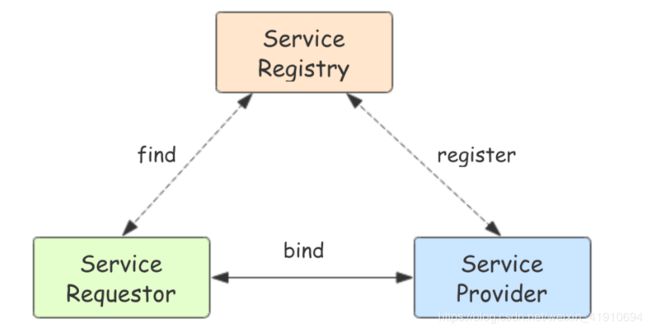Go操作etcd
Go操作etcd
目录
- etcd介绍
- etcd应用场景
- 为什么用etcd而不用Zookeeper
- etcd集群
- Go语言操作etcd
1. etcd介绍
-
etcd是使用Go语言开发的一个开源的、高可用的分布式key-value存储系统,可以用于配置共享和服务的注册和发现。
-
类似项目有zookeeper和consul。
-
etcd具有以下特点:
- 完全复制:集群中的每个节点都可以使用完整的存档
- 高可用性:Etcd可用于避免硬件的单点故障或网络问题
- 一致性:每次读取都会返回跨多主机的最新写入
- 简单:包括一个定义良好、面向用户的API(gRPC)
- 安全:实现了带有可选的客户端证书身份验证的自动化TLS
- 快速:每秒10000次写入的基准速度
- 可靠:使用Raft算法实现了强一致、高可用的服务存储目录
2. etcd应用场景
1. 服务发现
- 服务发现要解决的也是分布式系统中最常见的问题之一,即在同一个分布式集群中的进程或服务,要如何才能找到对方并建立连接。本质上来说,服务发现就是想要了解集群中是否有进程在监听 udp 或 tcp 端口,并且通过名字就可以查找和连接。

2. 配置中心
-
将一些配置信息放到 etcd 上进行集中管理。
-
这类场景的使用方式通常是这样:应用在启动的时候主动从 etcd 获取一次配置信息,同时,在 etcd 节点上注册一个 Watcher 并等待,以后每次配置有更新的时候,etcd 都会实时通知订阅者,以此达到获取最新配置信息的目的。
3. 分布式锁
- 因为 etcd 使用 Raft 算法保持了数据的强一致性,某次操作存储到集群中的值必然是全局一致的,所以很容易实现分布式锁。锁服务有两种使用方式,一是保持独占,二是控制时序。
- 保持独占即所有获取锁的用户最终只有一个可以得到。etcd 为此提供了一套实现分布式锁原子操作 CAS(CompareAndSwap)的 API。通过设置prevExist值,可以保证在多个节点同时去创建某个目录时,只有一个成功。而创建成功的用户就可以认为是获得了锁。
- 控制时序,即所有想要获得锁的用户都会被安排执行,但是获得锁的顺序也是全局唯一的,同时决定了执行顺序。etcd 为此也提供了一套 API(自动创建有序键),对一个目录建值时指定为POST动作,这样 etcd 会自动在目录下生成一个当前最大的值为键,存储这个新的值(客户端编号)。同时还可以使用 API 按顺序列出所有当前目录下的键值。此时这些键的值就是客户端的时序,而这些键中存储的值可以是代表客户端的编号。
3. 为什么用 etcd 而不用ZooKeeper?
- etcd 实现的这些功能,ZooKeeper都能实现。那么为什么要用 etcd 而非直接使用ZooKeeper呢?
1. 为什么不选择ZooKeeper?
- 部署维护复杂,其使用的Paxos强一致性算法复杂难懂。官方只提供了Java和C两种语言的接口。
- 使用Java编写引入大量的依赖。运维人员维护起来比较麻烦。
- 最近几年发展缓慢,不如etcd和consul等后起之秀。
2. 为什么选择etcd?
- 简单。使用 Go 语言编写部署简单;支持HTTP/JSON API,使用简单;使用 Raft 算法保证强一致性让用户易于理解。
- etcd 默认数据一更新就进行持久化。
- etcd 支持 SSL 客户端安全认证。
最后,etcd 作为一个年轻的项目,正在高速迭代和开发中,这既是一个优点,也是一个缺点。优点是它的未来具有无限的可能性,缺点是无法得到大项目长时间使用的检验。然而,目前 CoreOS、Kubernetes和CloudFoundry等知名项目均在生产环境中使用了etcd,所以总的来说,etcd值得你去尝试。
4. etcd集群
- etcd 作为一个高可用键值存储系统,天生就是为集群化而设计的。由于 Raft 算法在做决策时需要多数节点的投票,所以 etcd 一般部署集群推荐奇数个节点,推荐的数量为 3、5 或者 7 个节点构成一个集群。
1. 搭建一个3节点集群示例:
-
在每个etcd节点指定集群成员,为了区分不同的集群最好同时配置一个独一无二的token。
-
下面是提前定义好的集群信息,其中n1、n2和n3表示3个不同的etcd节点。
TOKEN=token-01
CLUSTER_STATE=new
CLUSTER=n1=http://10.240.0.17:2380,n2=http://10.240.0.18:2380,n3=http://10.240.0.19:2380
- 在n1这台机器上执行以下命令来启动etcd:
etcd --data-dir=data.etcd --name n1 \
--initial-advertise-peer-urls http://10.240.0.17:2380 --listen-peer-urls http://10.240.0.17:2380 \
--advertise-client-urls http://10.240.0.17:2379 --listen-client-urls http://10.240.0.17:2379 \
--initial-cluster ${CLUSTER} \
--initial-cluster-state ${CLUSTER_STATE} --initial-cluster-token ${TOKEN}
- 在n2这台机器上执行以下命令启动etcd:
etcd --data-dir=data.etcd --name n2 \
--initial-advertise-peer-urls http://10.240.0.18:2380 --listen-peer-urls http://10.240.0.18:2380 \
--advertise-client-urls http://10.240.0.18:2379 --listen-client-urls http://10.240.0.18:2379 \
--initial-cluster ${CLUSTER} \
--initial-cluster-state ${CLUSTER_STATE} --initial-cluster-token ${TOKEN}
- 在n3这台机器上执行以下命令启动etcd:
etcd --data-dir=data.etcd --name n3 \
--initial-advertise-peer-urls http://10.240.0.19:2380 --listen-peer-urls http://10.240.0.19:2380 \
--advertise-client-urls http://10.240.0.19:2379 --listen-client-urls http://10.240.0.19:2379 \
--initial-cluster ${CLUSTER} \
--initial-cluster-state ${CLUSTER_STATE} --initial-cluster-token ${TOKEN}
- etcd 官网提供了一个可以公网访问的 etcd 存储地址。你可以通过如下命令得到 etcd 服务的目录,并把它作为-discovery参数使用。
curl https://discovery.etcd.io/new?size=3
https://discovery.etcd.io/a81b5818e67a6ea83e9d4daea5ecbc92
# grab this token
TOKEN=token-01
CLUSTER_STATE=new
DISCOVERY=https://discovery.etcd.io/a81b5818e67a6ea83e9d4daea5ecbc92
etcd --data-dir=data.etcd --name n1 \
--initial-advertise-peer-urls http://10.240.0.17:2380 --listen-peer-urls http://10.240.0.17:2380 \
--advertise-client-urls http://10.240.0.17:2379 --listen-client-urls http://10.240.0.17:2379 \
--discovery ${DISCOVERY} \
--initial-cluster-state ${CLUSTER_STATE} --initial-cluster-token ${TOKEN}
etcd --data-dir=data.etcd --name n2 \
--initial-advertise-peer-urls http://10.240.0.18:2380 --listen-peer-urls http://10.240.0.18:2380 \
--advertise-client-urls http://10.240.0.18:2379 --listen-client-urls http://10.240.0.18:2379 \
--discovery ${DISCOVERY} \
--initial-cluster-state ${CLUSTER_STATE} --initial-cluster-token ${TOKEN}
etcd --data-dir=data.etcd --name n3 \
--initial-advertise-peer-urls http://10.240.0.19:2380 --listen-peer-urls http://10.240.0.19:2380 \
--advertise-client-urls http://10.240.0.19:2379 --listen-client-urls http:/10.240.0.19:2379 \
--discovery ${DISCOVERY} \
--initial-cluster-state ${CLUSTER_STATE} --initial-cluster-token ${TOKEN}
- 到此etcd集群就搭建起来了,可以使用etcdctl来连接etcd。
export ETCDCTL_API=3
HOST_1=10.240.0.17
HOST_2=10.240.0.18
HOST_3=10.240.0.19
ENDPOINTS=$HOST_1:2379,$HOST_2:2379,$HOST_3:2379
etcdctl --endpoints=$ENDPOINTS member list
5. Go语言操作etcd
- 这里使用官方的etcd/clientv3包来连接etcd并进行相关操作。
1. 安装
go get go.etcd.io/etcd/clientv3
2. put和get操作
- put命令用来设置键值对数据,get命令用来根据key获取值。
package main
import (
"context"
"fmt"
"time"
"go.etcd.io/etcd/clientv3"
)
// etcd client put/get demo
// use etcd/clientv3
func main() {
cli, err := clientv3.New(clientv3.Config{
Endpoints: []string{"127.0.0.1:2379"},
DialTimeout: 5 * time.Second,
})
if err != nil {
// handle error!
fmt.Printf("connect to etcd failed, err:%v\n", err)
return
}
fmt.Println("connect to etcd success")
defer cli.Close()
// put
ctx, cancel := context.WithTimeout(context.Background(), time.Second)
_, err = cli.Put(ctx, "hh", "helloworld")
cancel()
if err != nil {
fmt.Printf("put to etcd failed, err:%v\n", err)
return
}
// get
ctx, cancel = context.WithTimeout(context.Background(), time.Second)
resp, err := cli.Get(ctx, "hh")
cancel()
if err != nil {
fmt.Printf("get from etcd failed, err:%v\n", err)
return
}
for _, ev := range resp.Kvs {
fmt.Printf("%s:%s\n", ev.Key, ev.Value)
}
}
3. watch操作
- watch用来获取未来更改的通知。
package main
import (
"context"
"fmt"
"time"
"go.etcd.io/etcd/clientv3"
)
// watch demo
func main() {
cli, err := clientv3.New(clientv3.Config{
Endpoints: []string{"127.0.0.1:2379"},
DialTimeout: 5 * time.Second,
})
if err != nil {
fmt.Printf("connect to etcd failed, err:%v\n", err)
return
}
fmt.Println("connect to etcd success")
defer cli.Close()
// watch key:q1mi change
rch := cli.Watch(context.Background(), "hh") // <-chan WatchResponse
for wresp := range rch {
for _, ev := range wresp.Events {
fmt.Printf("Type: %s Key:%s Value:%s\n", ev.Type, ev.Kv.Key, ev.Kv.Value)
}
}
}

